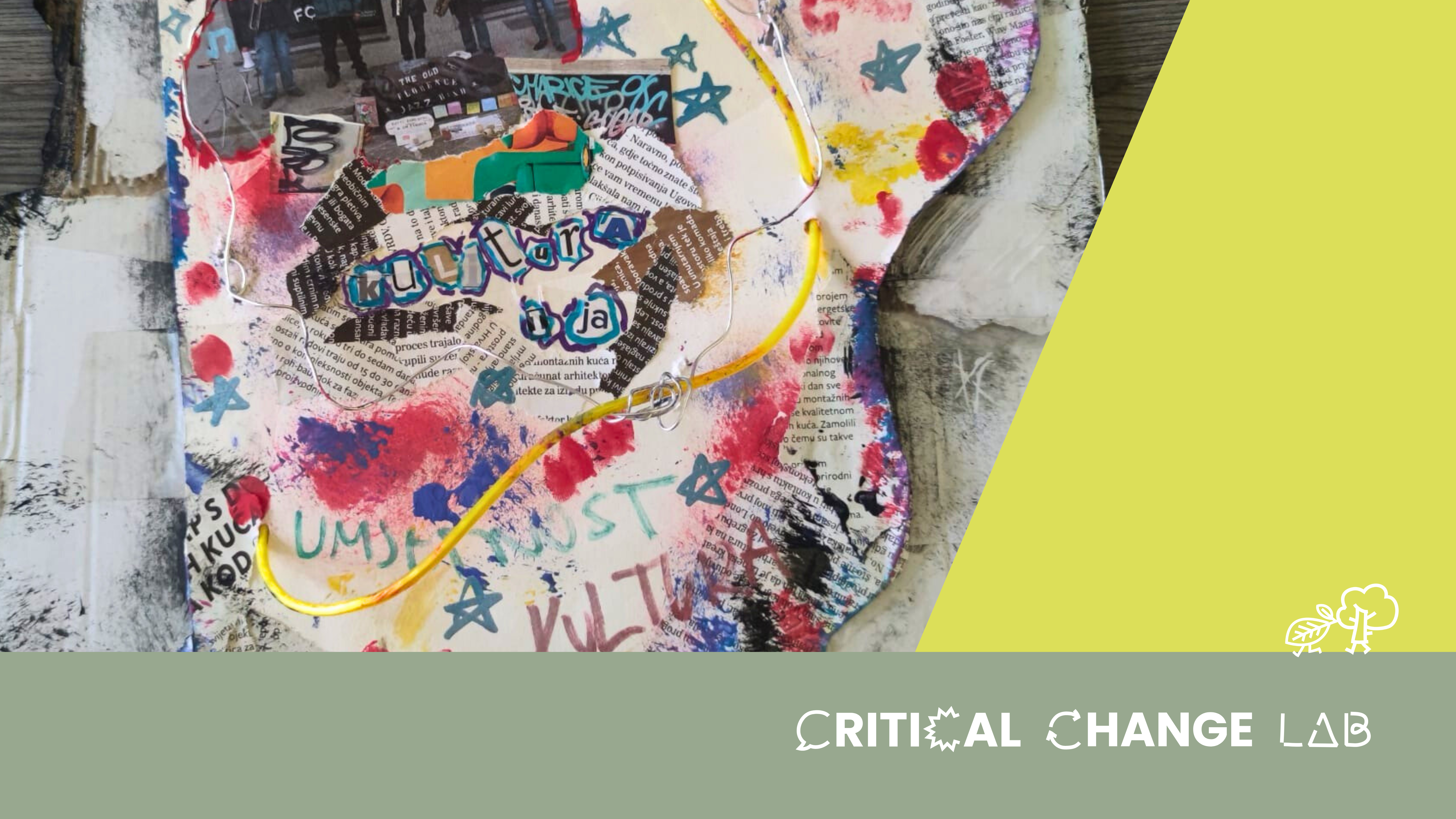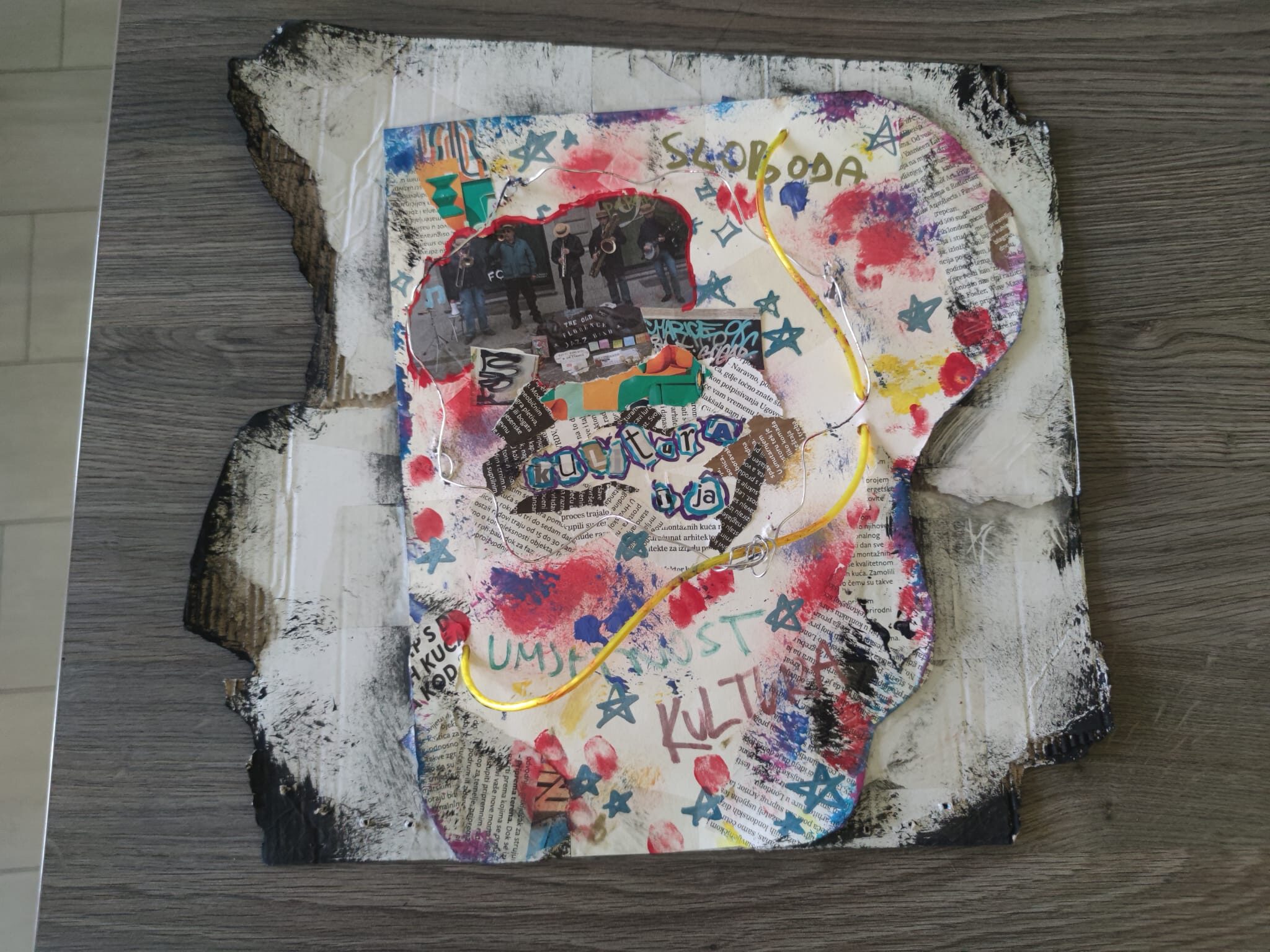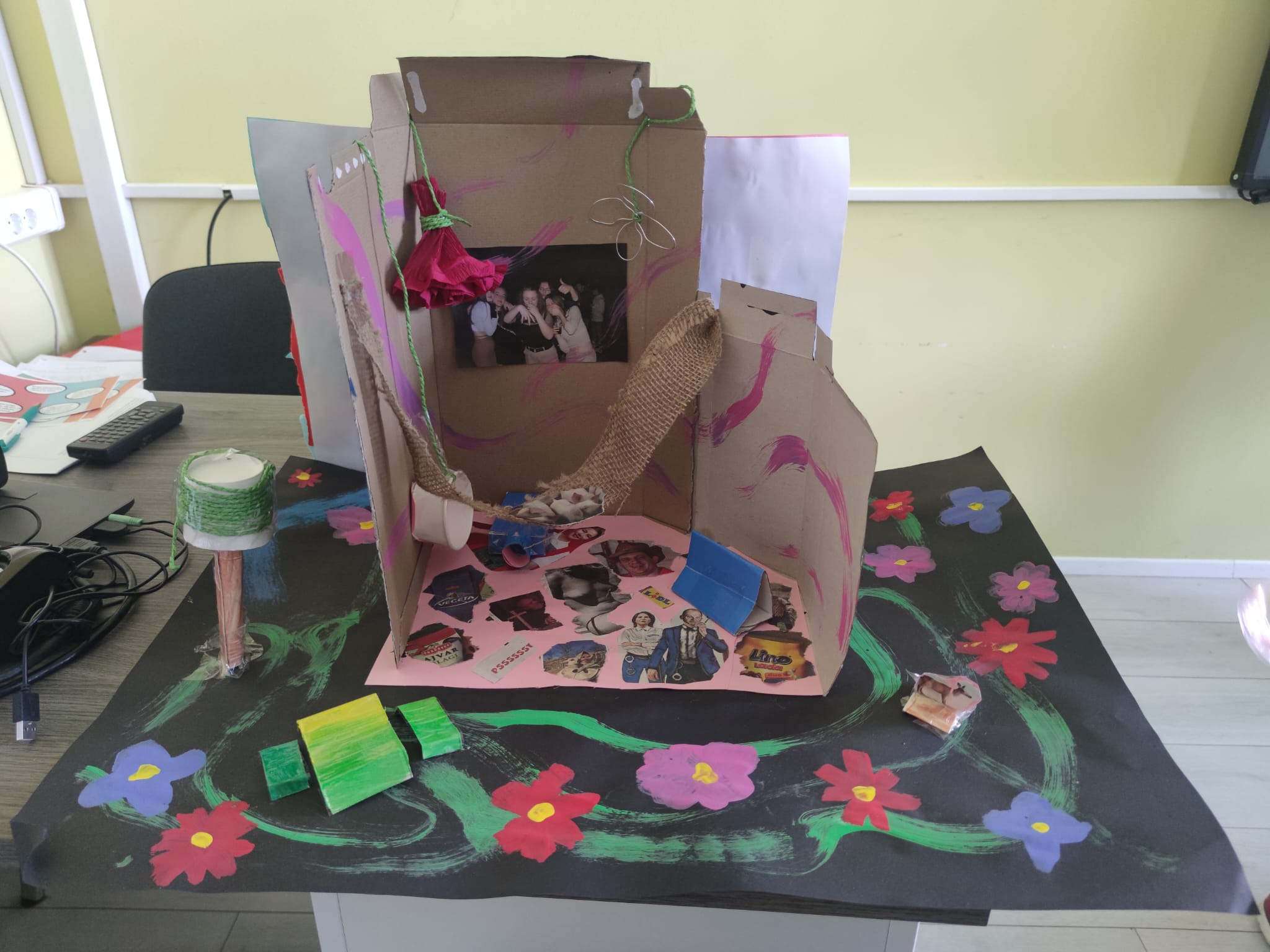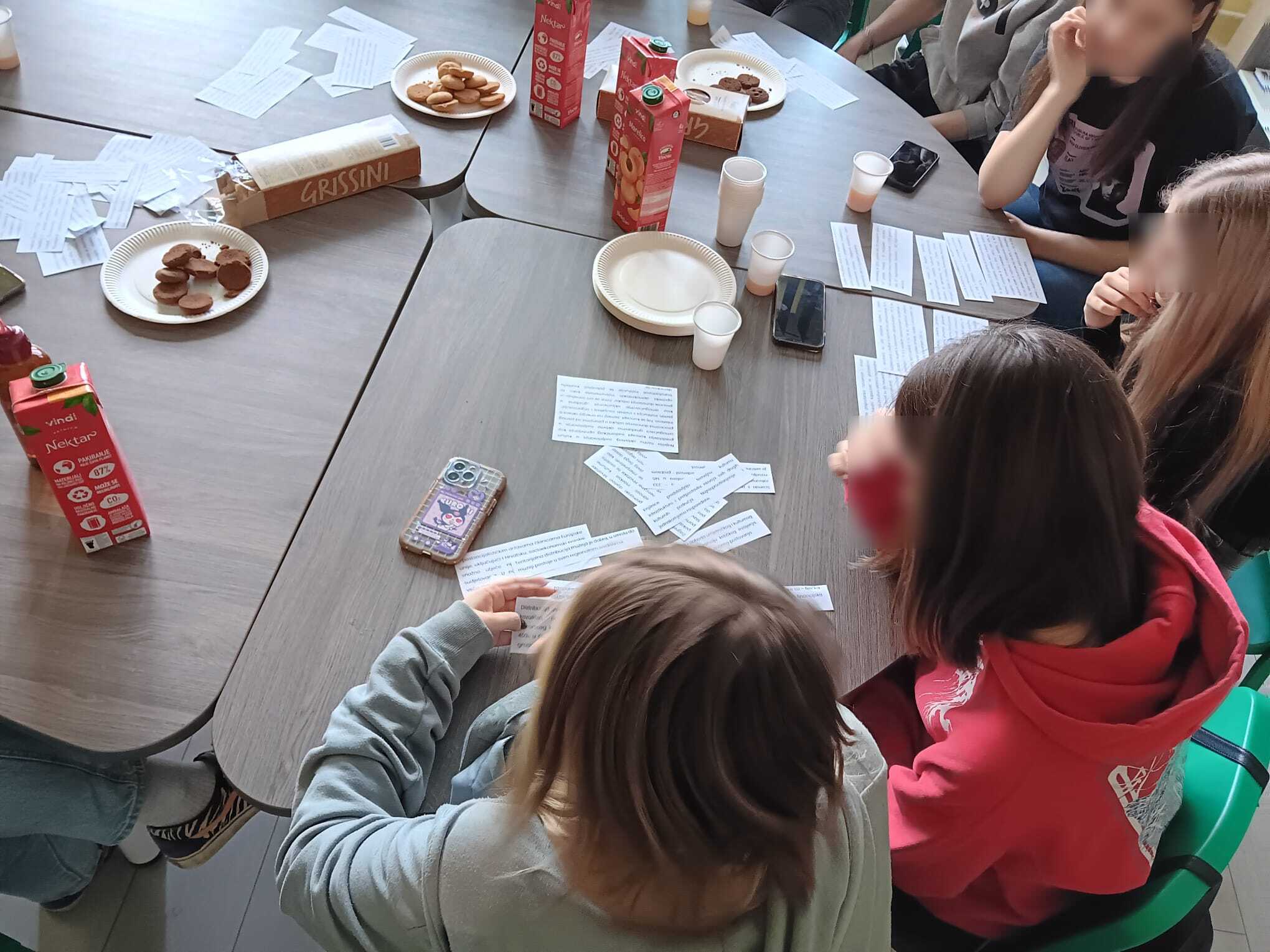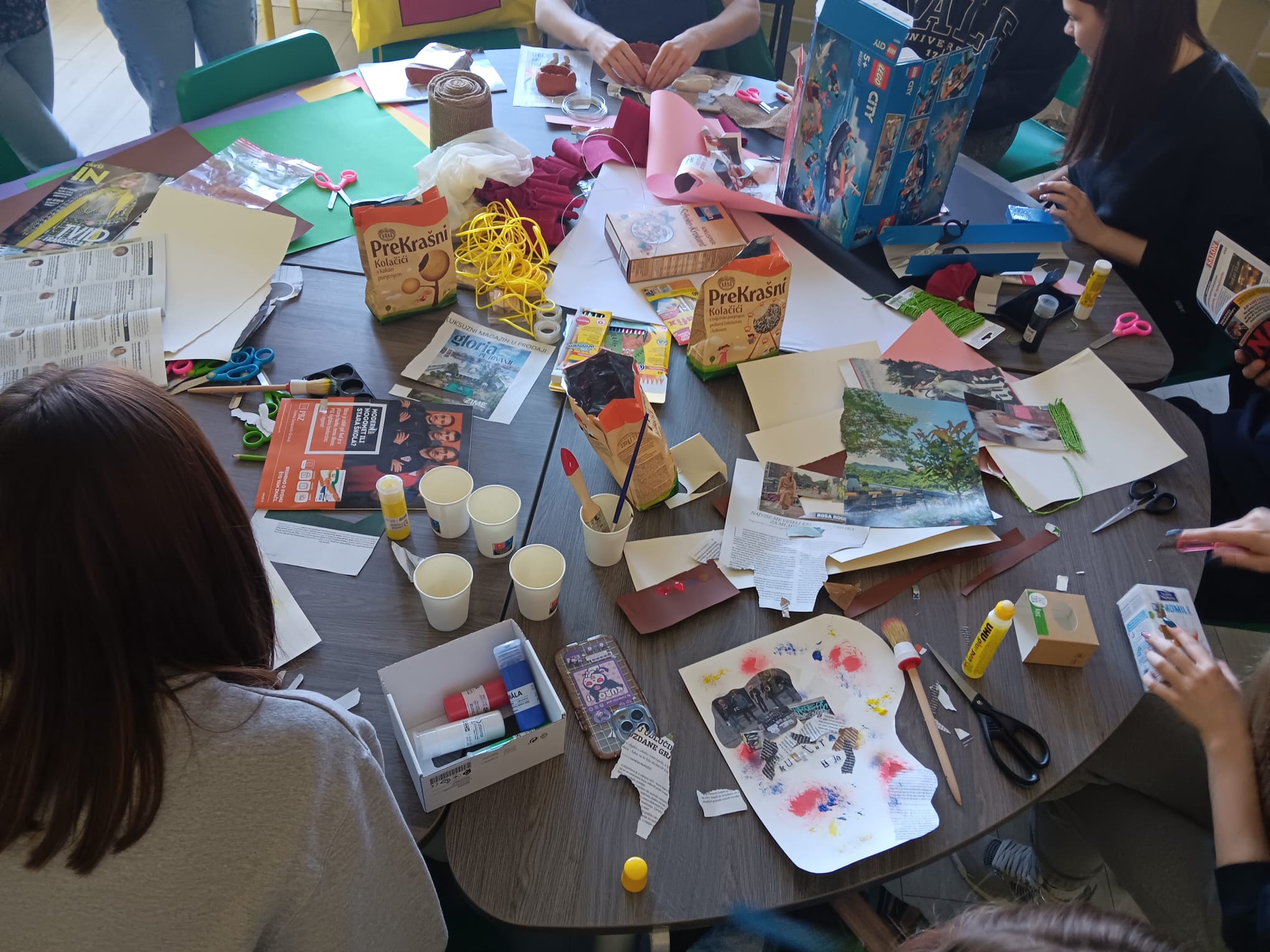The Critical ChangeLab project plays an important role in supporting the mission of the Institute for Social Research in Zagreb (ISRZ). ISRZ is committed to fostering civic education and participation among youth. The CCLab initiative aligns with this mission by enhancing young people to question and discuss problems in their surroundings. The institutional background of ISRZ, with its strong emphasis on research and community engagement, informs the CCLab’s approach, ensuring it is grounded in evidence-based practices and responsive to the needs of the community.
The objective of our CCLab was to explore and enhance the cultural participation of youth in the rural area of Zabok, Croatia. Young people from a secondary art school in Zabok chose this topic since they recognized that there are different barriers to their cultural participation. By focusing on this issue, they aimed to identify and address the barriers that prevent youth from participating in cultural events and activities, thereby fostering a more inclusive and vibrant cultural community.
Inspiring participants to take action, the CCLab employs Participatory Action Research (PAR) as its core methodology, which is collaborative and action oriented. The lab consists of multiple sessions designed to engage participants in identifying issues, analyzing them, envisioning solutions, and taking action. This approach ensures that participants are actively involved in every stage of the process, from problem identification to implementation of solutions. The methods used during this PAR cycle were photovoice, 5 whys, discussion in a forum, poster-making, participatory-decision making and speculative design.
Who participated in our first CCLab?
The first PAR cycle took place at a secondary art school in Zabok, Croatia. This formal learning environment has a history of collaboration with ISRZ through the civic education subject “School & Community” (S&C). The PAR cycle involved 13 students (9 females and 4 males), most of whom were in the 3rd grade, studying programs such as media technician, web designer, and graphic technician. The participants were primarily recruited through their involvement in the S&C subject, with a few additional students from other classes. The group also included three researchers, three educators, a representative from the arts residency “House of Klajn”, and a local government representative.
Challenges, Learnings & Feedback
During the first PAR cycle, several challenges were encountered. One significant challenge was the limited time available for group discussions, which sometimes prevented all perspectives from being fully explored. Participants expressed a need for more time to generate common conclusions and discuss diverse opinions. Additionally, while participants felt they could express their views and influence decisions, there was a perceived lack of agency in taking independent action.
Feedback from participants highlighted the positive atmosphere, the use of innovative tools like Miro boards, and the opportunity to deal with everyday democracy issues that they detected as important. Researchers noted the importance of pre-introducing the topic to participants, the need for more instructions to participants in certain segments, and the value of fostering a friendly and open environment.
Looking ahead
Summing up the first PAR cycle, we learned that students are eager to participate and share their ideas when given the opportunity. The session’s structure and tools were effective in promoting engagement and mutual learning, though there is room for improvement in time management and fostering a sense of agency among participants. Looking ahead to the next PAR cycle, we plan to incorporate more time for discussion and reflection, ensure diverse opinions are heard, and continue to build on the positive aspects identified by participants. This iterative approach will help us refine our methods and better organization of future PAR cycles.
Join our newsletter to continue to be updated on what we’re up to at #CriticalChangeLab. We’ll always keep it interesting, and only send you updates for as long as you want us to.
